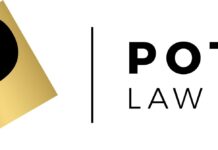Get to Know Your Higher Education Options
Education opens the door to opportunity
WASHINGTON, Dec. 2, 2014 /PRNewswire-HISPANIC PR WIRE/ — For many people, higher education is the key to achieving your goals, and an essential part of your professional development.
Logo – http://photos.prnewswire.com/prnh/20141030/155567LOGO
Logo – http://photos.prnewswire.com/prnh/20141030/155566LOGO
There are different types of schools to help you meet your higher education goals:
Vocational schools
At vocational or trade schools, you can pursue careers that require specialized knowledge, such as auto mechanics, electrician, interior design, cosmetology, and more.
Most vocational schools are accredited and will help you look for a job in your field. The amount of time it takes to get certified depends on your area of specialization.
When choosing a vocational school, make sure it’s an accredited institution. To verify a school’s accreditation, consult the Department of Education’s Database of Accredited Postsecondary Institutions and Programs or the Council for Higher Education Accreditation (CHEA) website.
Community colleges
At community colleges, also known as junior colleges, you can choose from a wide range of educational options after graduating from high school. You can study subject matters such as science and technology, engineering, math, general education requirements, etc.
After completing your coursework, which typically takes two years, you earn an associate’s degree. With this degree you have the option of transferring to a four-year university to complete a bachelor’s degree.
Universities
Upon completing high school, or transferring from a community college, you can pursue a bachelor’s degree at a traditional university. A bachelor’s degree is usually a four year program, although this may vary depending on your situation.
You can choose your major from among many fields: economics, engineering, business administration, architecture, and more. In addition to granting bachelor’s degrees, many universities have schools of law or medicine, as well as master’s and doctorate programs in many disciplines.
Getting financial aid for your higher education
The cost of higher education depends on many factors, like the type of institution you choose to attend and whether you are subject to out-of-state tuition, in the case of public colleges or universities. The Federal government offers financial aid to help you cover the costs of your higher education.
To learn more about education issues, see USA.gov and GobiernoUSA.gov, the U.S. Government’s official web portals in English and Spanish, and part of the U.S. General Services Administration (GSA).







